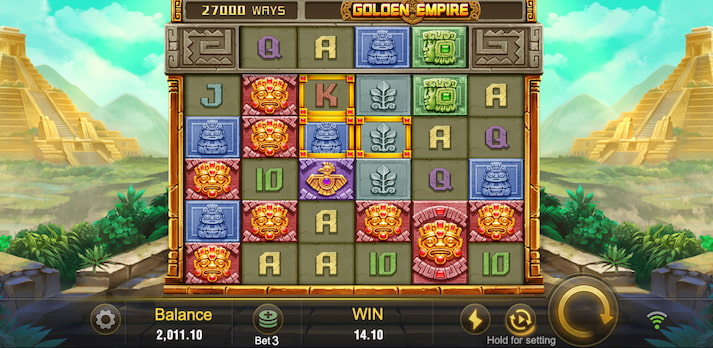Provably fair gambling means using an algorithm to ensure that the traditional casino games you play are genuinely fair. In short, it means that the casino can’t cheat, and that you’re getting the odds – and the chances of success – that you’re supposed to.
Read on to learn the details of how provably fair gambling works. We’ll explain exactly what the term means, give examples of how it’s used, and detail the pros & cons of provably fair algorithms.
What Is Provably Fair Gambling?
When you play most games in a physical casino, you can see for yourself that they’re being conducted properly. You can see the ball spinning on a roulette wheel; see the dice rolling across a craps table.
With online gambling, it isn’t so easy to spot provably fair games. The results of most games are conducted ‘behind-the-scenes’. As such, it could be very easy for the casino to cheat you, and take your money.
Provably fair gambling ensures this doesn’t happen. Specifically, it verifies that the results are actually random – and that you’re getting the correct odds – by using cryptographic algorithms (more on that in the next section).
Crucially, provably fair gambling also ensures transparency. The algorithms are usually easily available to view for yourself, so you can see exactly how all your results are being calculated.
Core Principles of Provably Fair Systems
The exact way in which provably fair gambling works can vary from casino to casino, and game to game. That said, there are certain core principles which should always be present.
Randomness
Genuine randomness is a large part of the appeal and challenge of online gambling. If the games aren’t random, then they’re not provably fair games, and playing is no longer fun.
Provably fair gambling involves using a Random Number Generator – an RNG – to calculate the results. As the name implies, this leads to truly random results.
To clarify though, all this does is ensure you’re getting the odds you’re supposed to. There will still be a built-in house edge, which – in turn – means the probabilities of winning are still against you.
Verification
All legitimate real money online casinos will have received some form of verification, most commonly an online gambling license. This still involves some degree of separation, however, and won’t go into the specifics about how and why a particular brand is fair.
One of the great things about provably fair gambling is that you can verify it yourself. You can open up the algorithm, see how it’s constructed, and see your exact chances of success, all without the involvement of a third-party.
Transparency
The ability to view the algorithm yourself, for the casino game you’re playing, affords complete transparency in the mechanics of how the results are calculated. In turn, this leads to increased trust in the brand. It also allows you to calculate your budget and stakes for online gambling with complete confidence, since you can be sure that you’re getting the probabilities you’re being promised.
Examples of Provably Fair Games Online
While the principles of provably fair gambling will remain the same, the actual ways in which it works can vary. Here are three of the most common examples.
RNG

As noted, a Random Number Generator ensures that the results of random games really are random. It works on a relatively simple algorithm, adjusted to the probabilities inherent in the game or bet type in question, and generates truly random numbers.
Shuffling and Dealing Cards
The basic principle here is the same as with an RNG. The only difference is that you’re generating card draw results, rather than numbers. Again, the algorithm can be customized based on the game or variant in question, and the number of decks being used.
Fairness Checks
Provably fair casinos won’t usually just let you view the algorithm of their online games. They’ll also let you view the results after each round with provably fair games, see exactly how the algorithm generated those results, and therefore confirm that they’re random and authentic.
Role of Blockchain Technology in Provably Fair Systems
Not all provably fair algorithms are built using blockchain technology. RNG’s were around before blockchain technology or bitcoin casinos became widespread, for example, and still generate fair results.
That said, many casinos – particularly off-shore, crypto-focused decentralized applications – do make use of blockchain technology. This arguably leads to even more provably fair results, since blockchain-based algorithms – once they’ve been created – cannot be altered, nor can the subsequent results. This basically removes any possibility of the casino itself messing with your outcomes.
Benefits of Provably Fair Gambling
We’ve obviously discussed provably fair gambling as a good thing overall here, and we do believe that to be the case. Here are the main reasons why:
- Far Lower Chance of Unfair Practices – It’s impossible to say that an online casino is ever completely, 100% genuine with you. That said, the chances of foul play are massively reduced when you can rest assured that the results you’re getting are genuinely fair.
- High Quality Games – Perhaps because the technology itself is modern and relatively new, provably fair gambling tends to go hand-in-hand with high quality provably fair games. Most commonly, this manifests itself in good graphics and smooth, user-friendly gameplay.
- Special Features – Provably fair casino games still have all the most important features, which play such a large role in how we evaluate betting sites. That includes not only in-game features like free spins and bonus rounds, but also compatibility with welcome offers and ongoing promotions.
Provably Fair Casino Games
One way or another, provably fair technology can be applied to basically every casino game. Here are some of the most popular and high profile examples.
Video Slots
Few casino games rely so heavily on provably fair gambling as much as online video slots.
Literally all of the results are being calculated behind the scenes. Also, even though the RTP should tell you your theoretical return, it’s impossible to guarantee this is accurate until you’ve been playing a long time.
As such, in both cases, having a provably fair algorithm to verify your results is absolutely crucial.
Table Games
Table games is a broad category, incorporating everything from baccarat and blackjack, through to provably fair roulette and online craps. All these casino games are either entirely or (in the case of blackjack) mostly luck-based.
The house edge might mean the casino retains the advantage here, but having a provably-fair algorithm ensures you’re still getting the publicly-stated odds.
Online Poker
Poker involves more player skill than completely random online games like roulette. That said, there’s obviously still a huge amount of luck involved, regarding the cards you’re given. The most trustworthy online poker sites will be transparent about how your digital hands are dealt, and explain how they’re provably fair.
Provably Fair Gambling and Regulatory Compliance
It’s important to note that there’s a distinction between ‘provably fair gambling’, and simply having a betting license. Crucially, the former is not a requirement for the latter. An online casino can still have a perfectly legitimate betting license and support responsible gambling, all without technically having a provably fair, publicly-viewable algorithm.
That said, provably fair casinos will still need to prove that they’re fair in order to get a proper license. The specifics will vary, depending on the regulatory body involved (Malta Gaming Authority, PAGCOR, and the local state governance in the USA). The license requirements for the MGA, for example, state that games must ‘satisfy the minimum requirements of fairness for their respective game types’, before going on to list those requirements in more detail.
Innovations in Provably Fair Gambling
The theory behind provably fair gambling has existed since online casinos were a thing. The ways in which it’s implemented, however, have evolved over time, with new technologies regularly being harnessed.
The evolution of blockchain tech to create universally unique identifiers, as referenced earlier, is the most obvious example. You can bet your bottom dollar, though, that any other potentially relevant advancements will also be used for provably fair dice games and other popular titles.
Problems with Provably Fair Systems
As noted, overall we certainly admire the principles behind provably fair casino games. There are still a couple of question marks here though, as you can see below.
- Heavy Crypto-Focus – Random number generators can be used on any betting site, using any currency. Many provably fair games, however – especially those based on blockchain technology – will only be available on crypto casinos, potentially alienating fiat-only users.
- Subject to Technical Issues – We’ve tried to stick to the general principles of provably fair gambling here, but there’s often some pretty complex tech under the surface. Should a problem occur with that tech, it will impact the fairness of the results. One common example is a nonce overflow. The ‘nonce’ is a number that increases by 1 for every new round of a provably fair game, helping to track your results over time, but – occasionally – this number will get out of sync with your actual play.
- Possibility of Hacking – Like almost all online technologies, provably fair algorithms are subject to hacking by those with enough determination and technical know-how. In this case, it’s possible to expose the client-side ‘starting seed’.
Unlike the player-side seed, this is supposed to be hidden until after the round has been played. Exposing it lets hackers work out the result, which unbalances player-vs-player games like poker.
Final Thoughts
There’s no doubt that the aim of provably fair gambling is laudable. We all want casino gaming to be as fair as possible for the player. The only debate is whether or not provably fair algorithms actually achieve this aim.
Generally speaking, we believe they do. They’re not perfect by any means, particularly since they’re technically still open to exploitation by hackers and, to an extent, casinos. That said, they do achieve arguably their most important aim – providing greater transparency for players, and allowing you to see exactly how your results are calculated.



